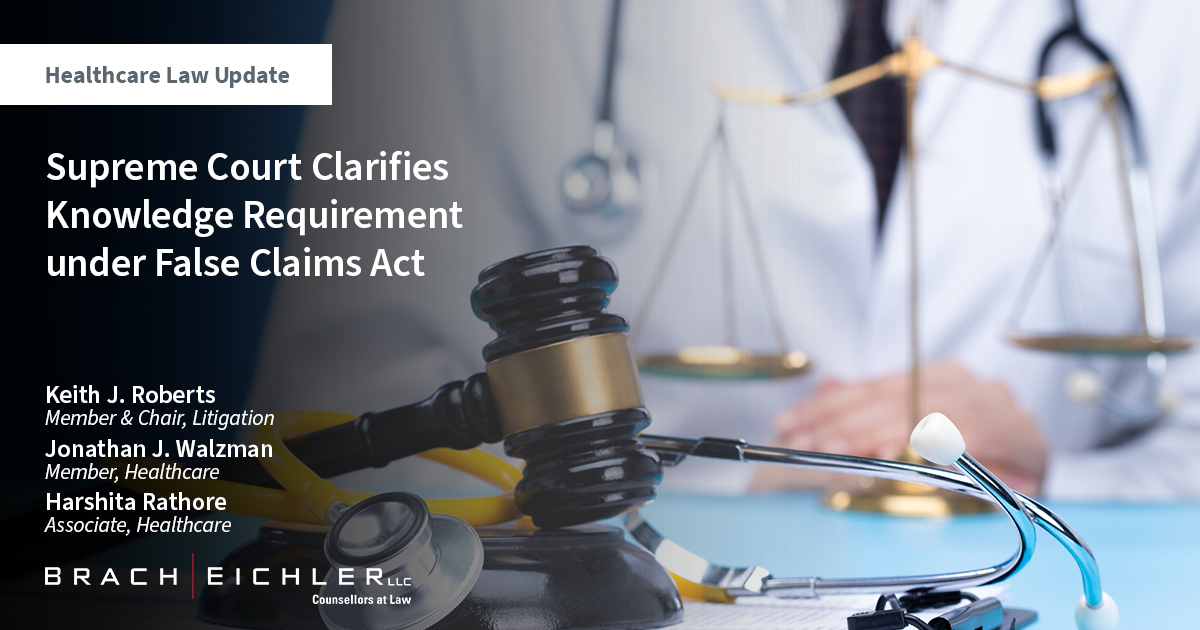Supreme Court Clarifies Knowledge Requirement under False Claims Act

June 30, 2023
On June 1, 2023, in a unanimous decision, the United States Supreme Court found in U.S. ex. rel. Schutte v. SuperValu Inc. that liability under the False Claims Act (FCA) turns on a defendant’s subjective belief that the claims they submit are false, and is not determined based on an objective reasonableness standard of knowledge. The FCA targets fraud related to government contracts and the submission of claims for payment from the government. The FCA imposes liability on defendants who knowingly submit false or fraudulent claims for government payment, and defines “knowingly” as acting with actual knowledge, deliberate ignorance, or reckless disregard. In its ruling, the Supreme Court overturned two Seventh Circuit decisions that held that a defendant’s subjective beliefs are irrelevant in FCA cases if the defendant’s conduct represented an objectively reasonable interpretation of the relevant issue.
The cases involved pharmacies that were accused by whistleblowers of overcharging Medicare, Medicaid, and the Federal Employee Health Benefits Program for prescription drugs. The whistleblowers alleged that the pharmacies overbilled the government by offering discounted prices to customers but not adjusting their “usual and customary” prices in the claims they submitted for reimbursement, which should reflect the price the provider actually charged for the pharmaceuticals. The Seventh Circuit ruled in favor of the pharmacies, applying an objectively reasonable standard in determining whether a provider knowingly submitted false claims. The Supreme Court rejected the Seventh Circuit’s reasoning, finding that a defendant meets the FCA’s intent requirement if the defendant’s subjective beliefs indicate it had knowledge that its submission of claims was false, regardless of whether the defendant’s conduct could be supported by a later objectively reasonable interpretation of the law. The Court also found that the “knowingly” standard under the FCA may be satisfied by proof of actual knowledge, deliberate ignorance or reckless disregard of the truth or falsity of the claim.
Click Here to read the entire June 2023 Healthcare Law Update now!
Related Practices: Healthcare Law
Related Attorney: Keith J. Roberts, Jonathan J. Walzman
Related Industry: Healthcare











